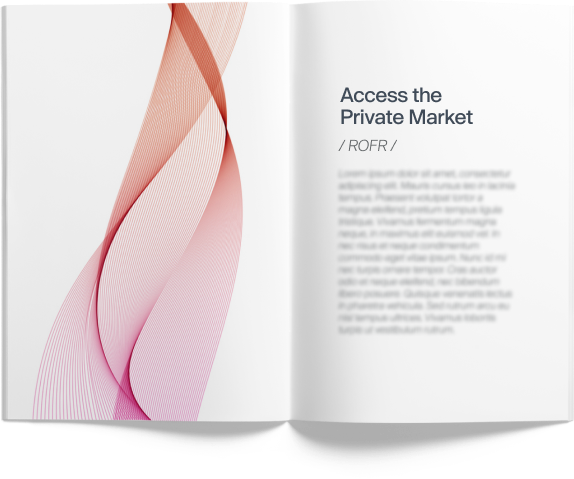Private Market Glossary
What does Right of First Refusal (ROFR) mean in stocks?
The Right of First Refusal (ROFR) is a contractual right that gives the ROFR holder priority over others to acquire shares that a shareholder is looking to sell.
In the private market, this can mean that the company or an investor has the right to purchase before others can when a shareholder is looking to sell.

A better understanding of a ROFR
For example, if a VC fund is already a shareholder and has a ROFR and wants to increase its stake in a startup by buying shares from an existing shareholder who is looking to sell their shares, the VC fund would have priority to purchase those shares at the price that was offered to the selling shareholder by another buyer. It can also be a right held by the private company that issued the shares, such as if the company wants to control/limit who becomes an investor in the company (i.e., who is on the company’s capitalization table) it can either repurchase the shares or give the ROFR to another investor that is already on the capitalization table of the company.
Effectively, a ROFR allows a private company to block the sale of shares to an external investor and instead have the employee sell those shares back to the company or an investor designated by the company.
What role do ROFRs play in the private market?
ROFRs can give private market companies more control when issuing employee equity, knowing that they could always step in as a buyer instead of letting external investors gain more control via stock ownership.



